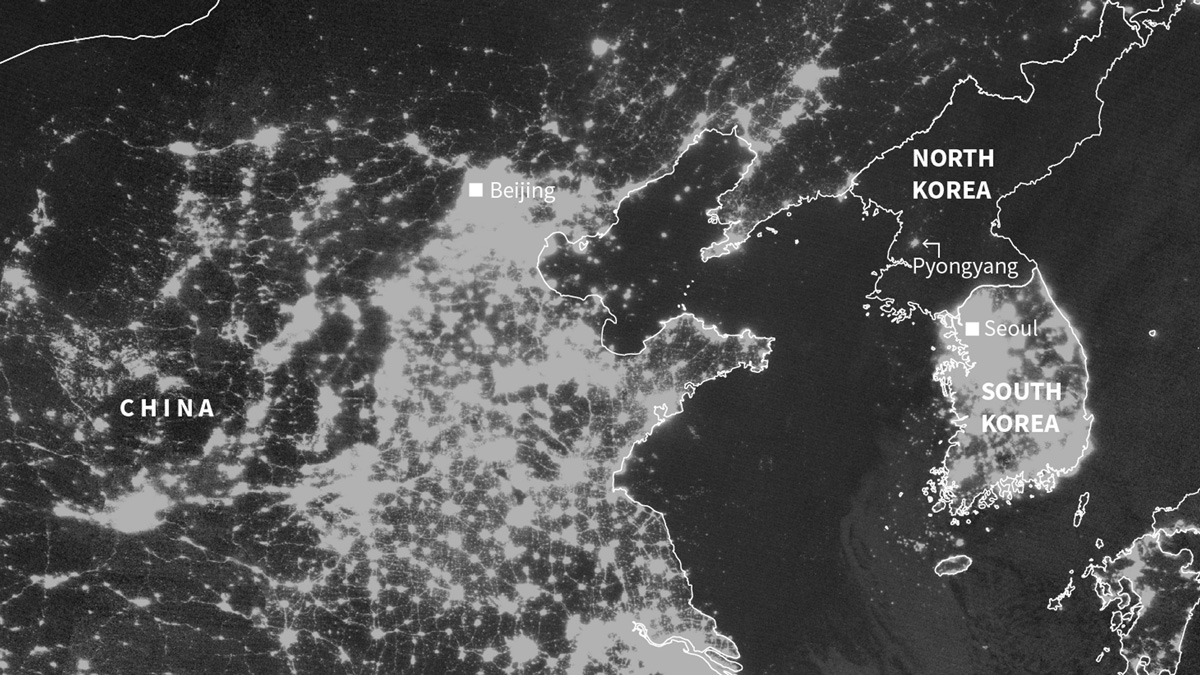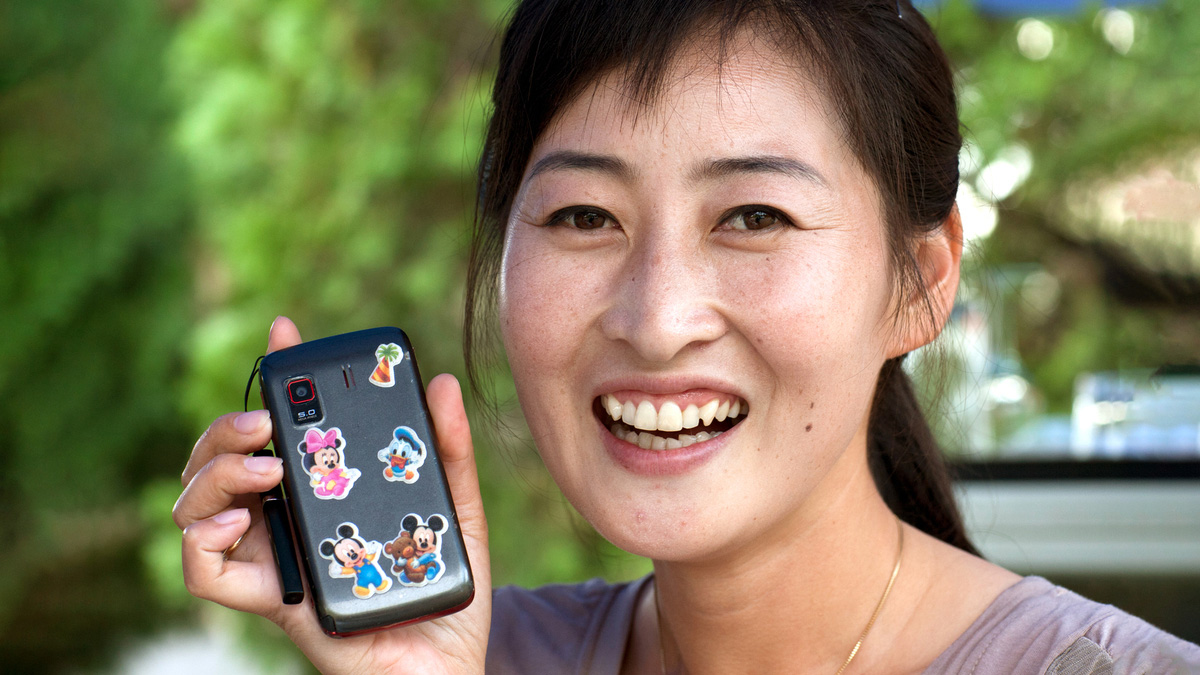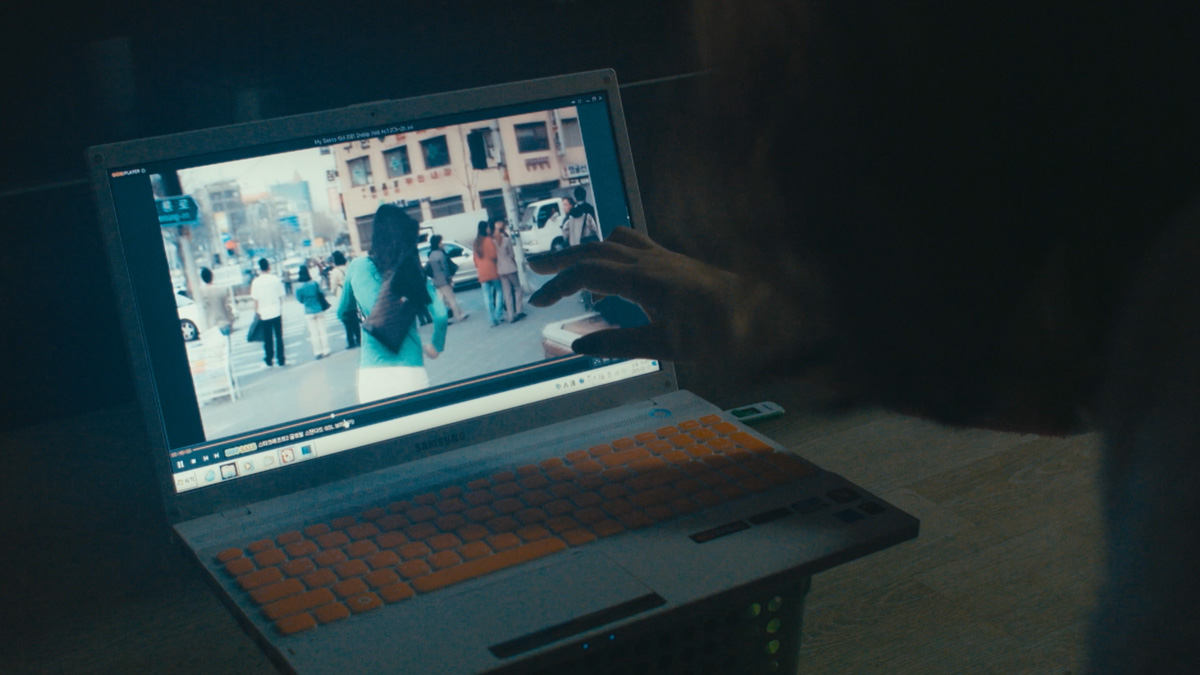Foreign Media in North Korea - How Kpop is Challenging the Regime
Movies, TV shows, and music hold power. They’re a way for us to connect through common experiences, reckon with different sides of humanity, and revel in the beauty of being here at all. They transport us to another time and place- perhaps one of our imaginations- and most importantly, allow us to dream and imagine a limitless future.

In recent years, South Korean media and entertainment has gained international recognition. People like Hyun Bin and Son Yejin, the stars of popular Korean drama Crash Landing on You, have become household names, while Parasite swept the 2020 Academy Awards and music from K-pop groups like BTS are charting globally.
Meanwhile, just across the border, North Korea remains one of the most closed societies in the world. Yet even in the “hermit kingdom,” foreign media is accelerating empowerment of the people and change within the country!
Forced Isolation and the Regime’s Information Monopoly
The North Korean government has maintained power for decades through a system of imposed isolation, relentless indoctrination, and brutal repression. A complete monopoly on information and ideas within the country has been key- outside media threatens to challenge the legitimacy of their propaganda, and by extension, their control.
The 2014 United Nations Commission of Inquiry on Human Rights in North Korea reported an almost complete denial of the right to freedom of thought, conscience, and religion as well as of the rights to freedom of speech, opinion, expression, and association.

The regime employs a range of strategies to enforce information control:
- Restricting movement across borders and within the country
- Random house searches
- Severe punishment, including public executions, to deter foreign media consumption and sharing
- Sophisticated digital surveillance
- Jamming phone signals and locating users through signal triangulation
- Mobile OS file signature system that only permits government-approved apps and files
The Spread of Foreign Media
Despite this isolation and unparalleled internal restrictions, the North Korean people have been quietly changing their country from within, including through foreign media access. Through market activity and the movement of people and goods across the Chinese border, they have forced the gradual opening up of their society. Movies and music are smuggled into the country on USBs, SD and MicroSD cards, and small portable media players, offering illicit access to information from the outside world.
With lights off and windows shuttered, North Koreans will watch foreign media despite the risks. If all else fails, bribes are a way for people to reduce punishment if caught. Most North Korean police and government officials rely on bribes to survive, and some defectors complain that they are actually the biggest consumers of foreign media because they confiscate so much.

Information Technology in North Korea
Within North Korea, a broad range of information technologies are available, although they should be registered with authorities. Laptops and computers officially run on a government operating system, Red Star OS, while the North Korean intranet, Kwangmyong, is air-gapped from the internet and heavily surveilled. However, in practice, many North Koreans have non-networked devices used for games, editing software, watching videos, and to copy, delete and transfer media on removable devices.
Mobile phones are also common with approximately 6 million on the North Korean network, meaning roughly 1 in 4 people have one. These North Korean phones generally cannot make international calls and the operating system limits users to approved state media (programs have been developed to bypass this security). On the other hand, smuggled Chinese phones can be used in border regions on the Chinese network. These have been crucial for staying in touch with relatives who have escaped or defected, who often send back money and information from the outside world.

Radios are the only channel of foreign media and news available real-time across the country. While they should officially be registered and fixed to North Korean stations, it is relatively easy to tamper with radio sets to pick up foreign broadcasts. In border regions, some TVs can also pick up live programming from South Korea and China. Traditionally, TVs were connected to DVD players, but newer LCD televisions also have direct USB input ports.
How Foreign Media Changes Perceptions
Among foreign media, entertainment from South Korea is particularly attractive, produced in the same base language by people with the same ancestry. They contain glimpses of rich and free realities just across the border. In comparison, domestic North Korean media seems old-fashioned and disingenuous, designed to reinforce the regime’s ideologies.
As North Koreans learn more about life, freedom and prosperity in the outside world, and their own relative poverty, the regime’s ideology and control are eroded.

“At first you see the cars, apartment buildings, and markets and you think it must be a movie set. But the more you watch, there’s no way it can be just a set. If you watch one or two [movies] it always raises these doubts, and if you keep watching you know for sure. You realize how well South Koreans and other foreigners live.”
– Danbi, escaped North Korea in 2011
Empowered by foreign media, North Koreans are exploring their creativity and potential through everyday acts of resistance- using South Korean slang, copying fashion styles, and sharing pop culture references. In this culture war, Kim Jong-un has called for crackdowns on "unsavory, individualistic, anti-socialist behavior" among young people to restrict freedom of expression.
Foreign media also facilitates shared acts of resistance. People will swap USB devices with trusted friends and neighbors, increasing confidence in one another through a symmetrical transaction. Some people may also watch and discuss movies and shows together, increasing the media’s subversive influence and creating social networks.
The Regime’s Response
During the pandemic, we’ve seen unprecedented levels of isolation and restrictions, closing off the country more than ever before. To buttress control, Kim Jong Un has simultaneously increased crackdowns and punishments on foreign media consumption. In December 2020, the “anti-reactionary thought law” made watching foreign media punishable by 15 years in a political prison camp.
While the situation is harrowing, the government’s extreme response underscores the power of foreign media. The regime recognizes that social changes driven by North Korean people are a threat to their authority and control in the long term.
Accelerating Foreign Media Access and Change
Moving forward, increasing access to outside information is one of the most effective ways to help the North Korean people and bring forward change.
Information and technology support for North Korean people has historically been an under-utilized and under-invested strategy. LiNK Labs is our area of work focused on this opportunity- we’re developing technologies, networks, and content to empower North Korean people with access to information and ideas from the outside world.
A North Korean Refugee’s Legacy of Freedom | Holly & Mia’s Story
As a little girl in North Korea, I dreamt of becoming a musician. When I was 6 years old, I saw my school teacher playing the organ. After class one day, I went up and placed my hands on the keys, trying to mimic what she played. When the teacher got back, she asked who touched the organ. All the kids looked at me and I thought I’d get in trouble, but instead of punishing me, she started teaching me how to read music. Eventually, my teacher came to my home and urged my parents to send me to Pyongyang, North Korea’s capital, to pursue music with some of the country’s best musicians.

But my parents knew I could not achieve my dream. My grandfather had been a landowner before the North Korean regime took power. When the Korean War broke out, he had fled to the South, never to be heard from again. The regime didn’t forget my family’s past - to them, we were traitors. Before I was even born, my future had been decided.
I couldn’t attend a university or get a good job. While others studied, I would have to dig for coal and sell it.
One night, I was gathering firewood on a mountain near the South Korean border with another girl. In the distance, I saw a town that was dazzlingly bright in the dark evening. Electricity is a luxury in North Korea, and I soon realized I was looking across the border. I had secretly watched South Korean movies for years. I had seen the delicious food they ate and the amazing places they traveled. I stared at the lights and dreamed of what my life could be.
The dream was too powerful to ignore. I worked every day from sunrise to sunset to save money for my escape.
I gathered rare mushrooms on the slopes of North Korea’s tallest mountain, through the bitter cold. After sixty trips, I had enough money to hire a broker to help me escape into China.
But I trusted the wrong broker.
The broker betrayed us and sold us out. Soldiers were waiting for us at the meeting point and we were dragged from the river to an interrogation cell. The secret police want you to confess that you were trying to defect to South Korea. They beat you with a stick and slam your head against a wall until you just want the pain to stop. But if you confess, you’re sent to a political prison camp to die like an animal.
So I refused to say anything. They kept beating me and screaming at me, but I closed my eyes and held on to my dream of freedom. It was two weeks before they finally sent me to a detention center.

A woman in my cell told me about another broker who could help me escape. But there was a catch - I would have to be sold to a man in China.
I chose the unimaginable. I was sold for less than $3,000.
It is hard for me to talk about this time in my life. The man who bought me kept me in a small bedroom in his house. In one month, I was pregnant. When he found out, he told me to get an abortion. I refused. He tried to drug me and take me to get an abortion while I was unconscious.
One night I felt sick and thought it was food poisoning, but I was in labor and rushed to the hospital. After twenty hours, the doctor had to perform an emergency c-section. The man who bought me complained about the extra expense.
But when I woke up, there was my beautiful baby. I put her on my chest and knew she was my everything. My new dream was to give my daughter Mia a chance to have a better life than me.

I knew we couldn’t stay in China. The man who bought me didn’t want a child, and every day we stayed was another day we could get caught. But I couldn’t take a newborn baby on the dangerous journey. I waited until Mia was one year old, making secret plans with someone who could help us escape - now I know they were part of LiNK’s rescue network.
The day of our escape finally came, and we went to a safe house. I had Mia on my back and a bag full of diapers, clothes, and a small bracelet that was a gift for her. It was everything we had. We met up with other North Koreans, and they were not happy that Mia and I were joining them. I could not blame them. There were stories about groups that were caught because of a crying baby.
Taking care of a one year old is hard enough. Doing so while avoiding the Chinese police was one of the hardest things I have ever done.
I didn’t want Mia to cry so I never put her down, even when my back and arms ached from rocking her. We never stopped for more than a few hours so I had to breastfeed her along the way. Whenever we did have a break, I’d change her diapers, clean her, and make sure she ate enough. By the time I was done, we had to move again. I didn’t have time to eat so I went days with barely any food.
But every mile we traveled brought us closer to our new life. One hot morning, we climbed into a boat and crossed a river. With Mia in my arms, we were met by LiNK’s field team who welcomed us into freedom.

There are two days I will never forget. The day Mia was born and the day I arrived in the United States. I cried so much walking out of the airport. I had no idea what our new life would look like, but we were together and we were finally free.
Now when Mia falls asleep in my arms, all I feel is happiness. My story used to only be about my dreams, but now, I am watching my daughter grow into a fearless and curious person. If I never decided to escape and if I didn’t have LiNK’s help, Mia’s life would be so different. Instead of growing hungry, she has a full stomach. Instead of learning North Korean propaganda, she’s learning about science and animals and the world. Instead of fearing we could be sent to a political prison camp, I just worry she’s growing up too soon.
I believe that one day, every North Korean will be free. And every child will be able to write their own story, like my Mia.

Thanks to Holly’s bravery and the help of LiNK supporters around the world, Mia will never know a life without freedom. Holly will be leaving behind a legacy of freedom for her daughter and for generations to come.
You can help rescue more North Korean refugees and support them as they begin their new lives.




